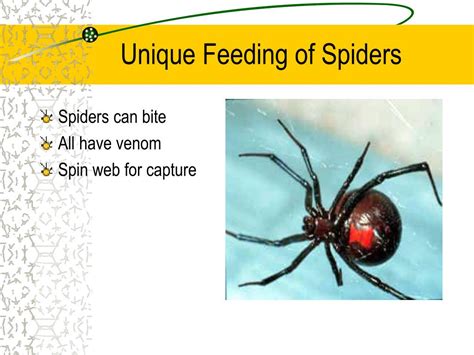Starving Spider? Learn the Right Feeding Habits Now!
So, you've got a pet spider, and you're wondering how to best care for it. One of the most crucial aspects of spider ownership is understanding their feeding habits. A starving spider is an unhappy spider, and an unhappy spider is a more likely candidate for illness or even death. This comprehensive guide will delve into the specifics of feeding your arachnid companion, ensuring its health and longevity.
What Do Spiders Eat?
This seems like a simple question, but the answer depends entirely on the species of your spider. There's no one-size-fits-all answer. Some spiders are highly specialized feeders, while others are more opportunistic.
-
Tarantulas: These popular pet spiders are generally insectivores. Their diet primarily consists of insects like crickets, roaches, and mealworms. The size of the prey should be roughly the size of the spider's abdomen. Larger prey can be offered to larger, adult tarantulas.
-
Jumping Spiders: These active hunters also eat insects, but smaller prey items are usually preferred. Fruit flies, small crickets, and flightless fruit flies are good options.
-
Other Spider Species: Research is key here! Before acquiring any spider, thoroughly research its specific dietary needs. Some spiders may require specific types of insects, while others might have different feeding frequencies.
How Often Should I Feed My Spider?
The frequency of feeding also varies widely depending on the species and age of your spider. Generally:
-
Young, growing spiders: Need to be fed more frequently, often every 2-3 days. They require more energy for growth and molting.
-
Adult spiders: Can be fed less often, perhaps once a week or even less frequently. Their metabolism slows down once they reach maturity.
Overfeeding is just as dangerous as underfeeding. A spider that has consumed a large meal may not eat for several days or even weeks afterward. Always observe your spider’s behavior and adjust feeding accordingly.
How to Feed Your Spider
Feeding your spider is surprisingly straightforward, but there are best practices to follow:
-
Use appropriate-sized prey: As mentioned before, avoid prey that's too large, as it can injure or stress your spider.
-
Live prey is preferred: Most spiders prefer to hunt live prey. This instinctual behavior provides enrichment and exercise.
-
Remove uneaten prey: Leftover food items can spoil and contaminate the enclosure. Remove any uneaten prey after a few hours.
-
Observe your spider's feeding behavior: Watch how your spider approaches and consumes its food. This gives you valuable insights into its health and appetite.
What if My Spider Isn't Eating?
A spider refusing food can indicate several problems:
-
Pre-molt: Before molting, spiders often stop eating. This is a normal part of their life cycle.
-
Illness: A loss of appetite can be a symptom of underlying health issues.
-
Stress: Changes in environment, handling, or incorrect temperature and humidity can all cause stress, leading to a decreased appetite.
If your spider consistently refuses food, consult a veterinarian specializing in exotic animals.
What Do I Do If My Spider Escapes During Feeding?
Spider escapes are a pet owner's worst nightmare. However, remaining calm and following these steps can help:
-
Contain the escape: Close all doors and windows, and limit access to the room to prevent it from venturing further.
-
Use a container: If you see your spider, cautiously use a clear container to gently trap it.
-
Contact an expert: In cases where you are unable to recover your spider, consider consulting a local pest control professional or spider relocation expert.
People Also Ask:
How do I know if my spider is dehydrated?
Dehydrated spiders often appear shrunken or lethargic. Their exoskeleton may look less firm. Maintaining appropriate humidity levels in their enclosure is crucial for preventing dehydration.
What are the signs of a sick spider?
Signs of illness vary depending on the illness, but can include lethargy, loss of appetite, unusual posture, changes in web-building behavior (if applicable), or visible wounds or deformities.
Can I feed my spider human food?
Absolutely not. Human food is unsuitable and can even be toxic for spiders. Stick to appropriate insect prey.
My spider isn't molting, is that a problem?
Molting frequency varies with species and age. However, prolonged periods without molting, especially in young spiders, could indicate a problem. Consult a veterinarian if concerned.
By understanding your spider's specific needs and following these guidelines, you can ensure a healthy and happy life for your arachnid companion. Remember, responsible ownership starts with thorough research and a commitment to providing the best possible care.

